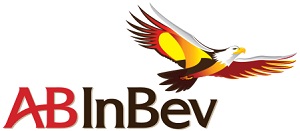Guest blog, by John Colley, Associate Dean, Warwick Business School
At long last the end is in sight for merger of the world’s two biggest Brewers AB InBev and SABMiller in a $106Bn deal. The deal, if completed, will result in one in every three beers brewed globally being produced by AB InBev.
So far, the deal has been running a year and crunch time arrives on September 28 when both company’s shareholders vote on the issue. SABMiller’s shareholder vote remains uncertain. While AB InBev have been deal making to divest all SABMiller’s businesses in North America, Europe and China to appease competition authorities, activist shareholders have built positions in SAB Miller.
 Activist shareholders/hedge funds have one objective which is to maximise their own profit and will do whatever is necessary to achieve that end. If that includes scuppering the entire deal then so be it. If AB InBev gains the necessary 75% majority then its CEO Carlos Brito will breathe an enormous sigh of relief. If not, it is back to the drawing board.
Activist shareholders/hedge funds have one objective which is to maximise their own profit and will do whatever is necessary to achieve that end. If that includes scuppering the entire deal then so be it. If AB InBev gains the necessary 75% majority then its CEO Carlos Brito will breathe an enormous sigh of relief. If not, it is back to the drawing board.
Hedge funds take up equity positions in target businesses with the objective of influencing the deal one way or the other. Typically, when a bidder makes an offer, the target businesse’s shares trade below the offer price to reflect uncertainty about whether the deal will succeed. A hedge fund will buy the shares and then vote them for the deal or attempt to force the price higher so that they benefit from the discount to the original offer price if the deal is subsequently done.
Steinhoff International’s bid for Poundland in the UK followed this course. Activist investors bought almost 42% of Poundland’s shares and forced the price higher. Aberdeen Asset Management and Elliott’s, a US activist investor, have positions in SABMiller and have forced the cash price higher already due to the fall in Sterling prompted by Brexit.
An alternative approach is to borrow shares and sell them, manipulate the deal to fail, then buy them back at a much reduced price. This is known as ‘short selling’ or ‘shorting’. Hedge funds tend to operate in cooperation with each other.
 Due to the shareholder structure in SABMiller, which has two large shareholders, Altria and Bevco, owning 41% of the shares, a UK court has agreed with the SABMiller board that they should form one shareholder class whilsethe rest make up another. As both classes need 75% of the votes to succeed,the mathematics means that an 85% shareholder vote is needed to approve the deal.
Due to the shareholder structure in SABMiller, which has two large shareholders, Altria and Bevco, owning 41% of the shares, a UK court has agreed with the SABMiller board that they should form one shareholder class whilsethe rest make up another. As both classes need 75% of the votes to succeed,the mathematics means that an 85% shareholder vote is needed to approve the deal.
As the activists have said they will vote against the deal, this creates some uncertainty. It may be that they are also ‘shorting’ the deal. If between them they have enough votes to stop the deal but have more ‘shorted’ shares they can make money.
If one considers the enormous costs of the deal so far and the effort involved in satisfying competition authorities, this would be an enormous blow to AB InBev and, indeed, many others. The remainder of the industry may now want the deal to succeed as it effectively precludes AB InBev from any further deal in US, Europe or China. It has restricted their ability to buy craft brewers or distributors in the US and likely elsewhere.
SABMiller’s businesses are being fragmented to a variety of buyers, some still to be determined. Molson Coors, Asahi, China Resource Enterprises have been beneficiaries so far. SABMiller’s senior managers will breathe a sigh of relief as only one stood to make Carlos Brito’s 19-strong top team. The rest would, no doubt, have been made available to pursue other opportunities.
The City believes the deal will happen as the SAB Miller discount to the offer price is relatively small at £1 below the cash bid price. However, one month to the vote can be a very long time when hedge funds are involved. Carlos Brito still has plenty to worry about.



